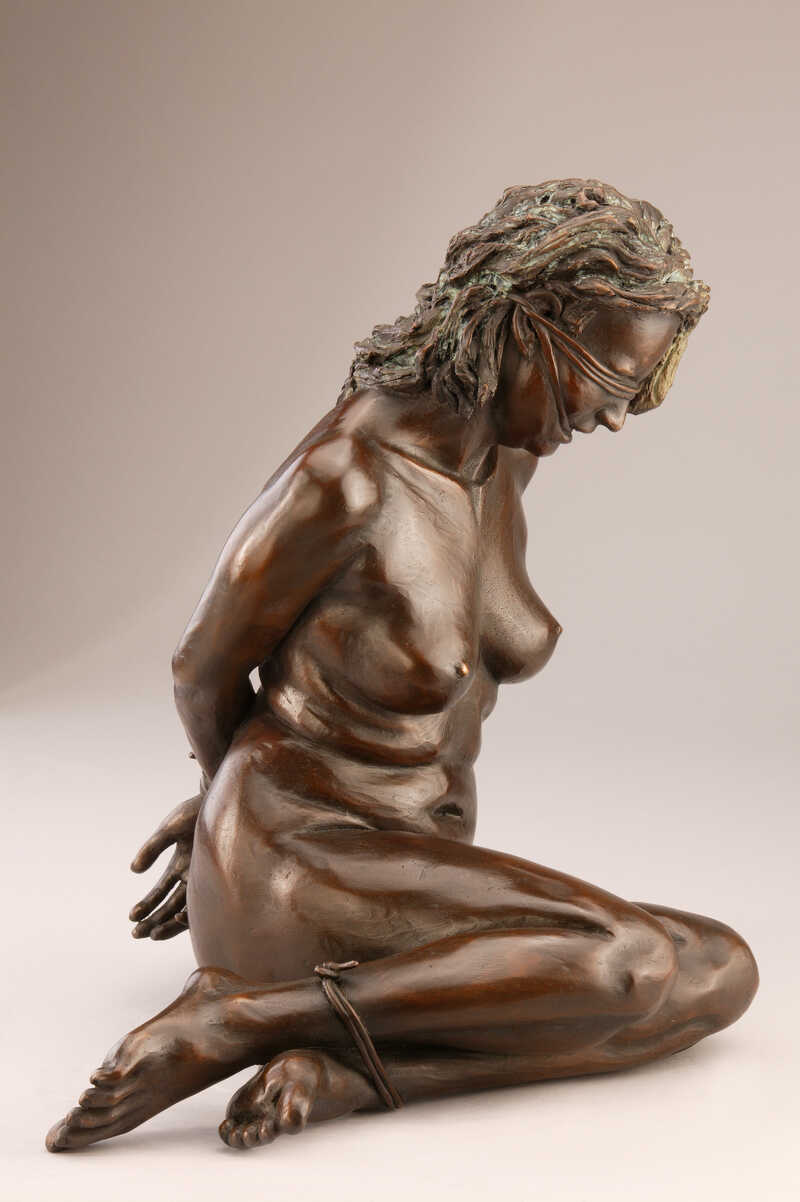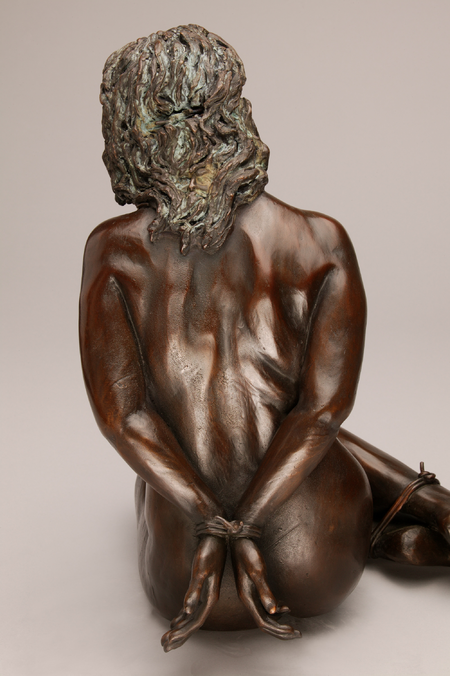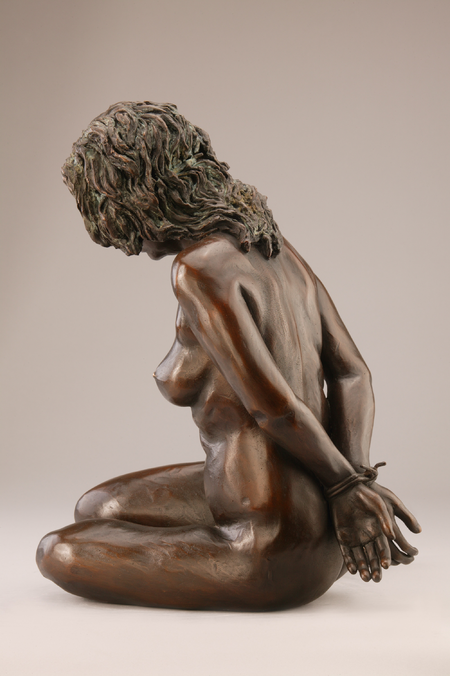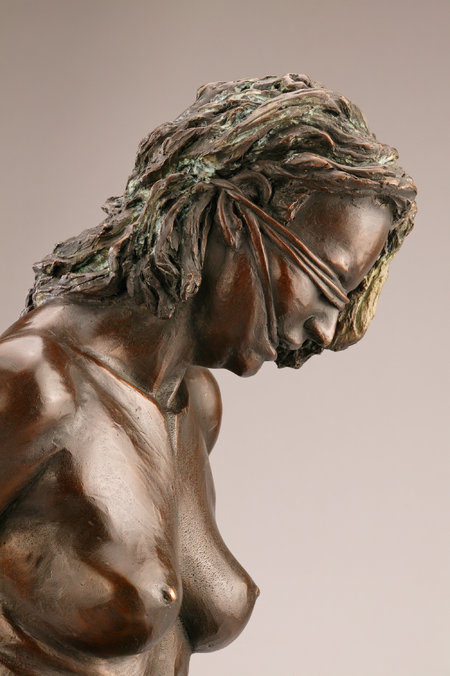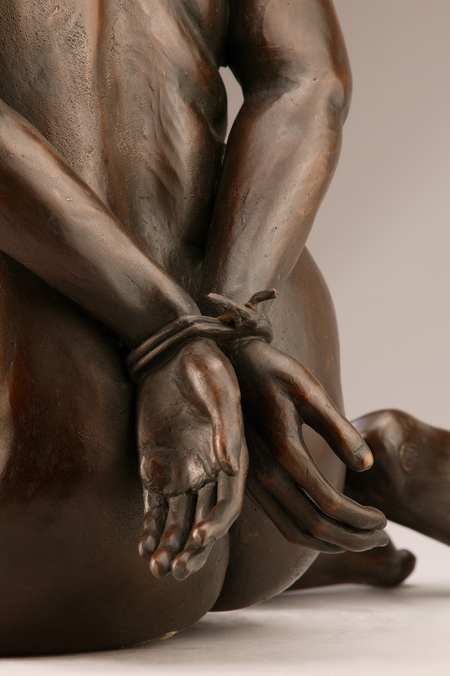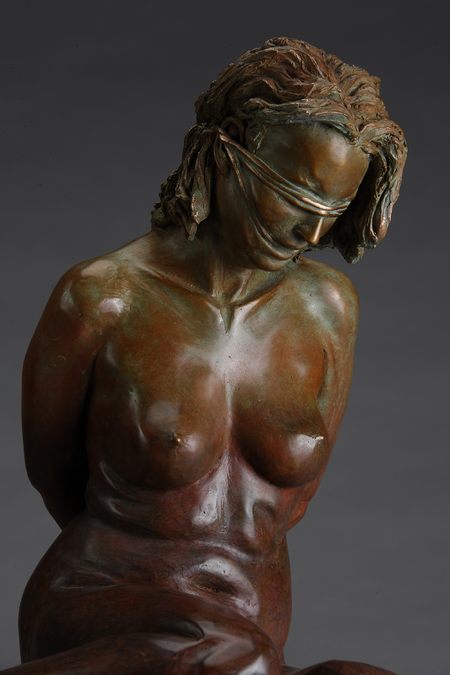ReThink Collection
Justice - The Patriot Act USA / Bill C-11 Canada
This Sculpture is presently FOR SALE
Please Contact me on my Profile Page BTC and SOL Accepted
U.S.A. P.A.T.R.I.O.T. Act stands for: Uniting and Strengthening America by Providing Appropriate Tools Required to Intercept and Obstruct Terrorism Act of 2001.
The United States, at one time was known to be the example of a Free Society, until the introduction of The Patriot Act.
This sculpture depicts the image of Justice as she was gaged and bound through legislation relating to this Act.
The Patriot Act affected average citizens in many ways. Before the Act in the 1960s, surveillance was regulated by an FBI program designed to seek information on domestic Civil Rights and political groups. In 1978, the Foreign Intelligence Surveillance Act Court was established to review requests allowing surveillance within U.S. borders. Since that time 35,435 requests for surveillance have been approved and 12 rejected.
Section 206 of the Act authorised "roving wiretaps", allowing law enforcement officials to wiretap any phone that might be connected, in any way, to a suspect.
Section 213 provided warrants that would allow law enforcement to enter and search a suspect’s property without notifying them at the time of the search.
Section 215 provides a provision requiring businesses to provide information of all types propagating the mass collection of phone metadata; Call Detail Records, which was ruled illegal in 2015. These broad search activities under Section 215 were only made public with the release by Edward Snowden in 2013 of classified documents on WikiLeaks.org.
Section 411 & 412 amendmented the Immigration Act, to expand the definitions of some classifications that disadvantaged Muslims in the US and granted the Secretary of State authority to designate any group as a terrorist organization.
Alleged Abuses Under The Patriot Act
In Las Vegas, police used a FISA warrant to monitor the activities of a strip club owner. Despite his guilt or innocence, it was a violation of the law. [http://www.aclu.org/SafeandFree/SafeandFree.cfm?ID=14338&c=206]
The FBI ordered all journalists that have ever written about a hacker, Adrian Lamo, to turn over their information under the auspices of the Patriot Act. [http://www.theregister.co.uk/2003/09/29/fbi_bypasses_first_amendment/]
Beyond the above examples, in September 2003, the New York Times reported that a study by Congress showed hundreds of cases where the Patriot Act was used to investigate non-terrorist crimes. [http://www.jointogether.org/sa/news/summaries/reader/0,1854,567051,00.html]
In April, 2004, a Muslim Idaho man went on trial on charges of supporting terrorism by maintaining some web sites (among many he assisted) that supported violent activities. [http://www.washingtonpost.com/wp-dyn/articles/A13072-2004Apr14.html] This type of "guilt by association" was resurrected by the 1996 "anti-terrorism" act signed by President Clinton, but was further expanded under the Patriot Act.
The ACLU was prevented from releasing the text of its lawsuit challenging aspects of the Patriot Act because the government claimed it would violate secrecy provisions of the act. [http://www.washingtonpost.com/wp-dyn/articles/A51423-2004Apr28.html]
